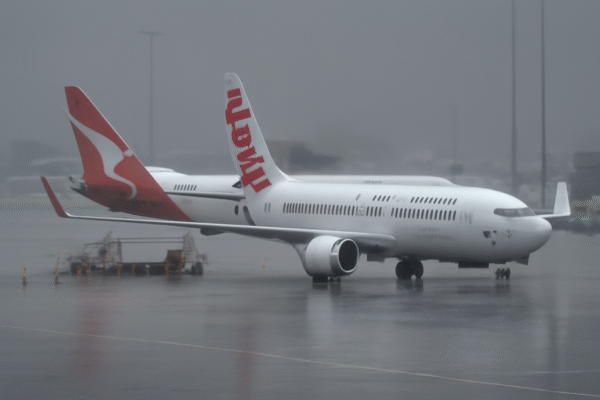The global tourism and aviation industries breathed a sigh of relief this week as airline and travel-related stocks on the London Stock Exchange soared following the announcement of a fragile ceasefire between Iran and Israel. Backed by diplomatic efforts from the United States, Germany, Qatar, and Egypt, the truce raised investor hopes for a temporary stabilization in one of the world’s most volatile regions.
This geopolitical pause, although tenuous, sent a wave of optimism across financial markets, with UK airline stocks among the immediate beneficiaries. The Middle East conflict had severely disrupted flight routes, increased fuel volatility, and dampened traveler confidence. The ceasefire now offers a momentary break from these risks, triggering a sharp uptick in stock prices of UK-based and Europe-linked carriers.
Travel Stocks Soar in London
As trading opened on Tuesday morning, leading UK-listed airlines experienced immediate gains. EasyJet PLC (LON: EZJ) jumped over 6%, while Wizz Air Holdings (LON: WIZZ) climbed more than 3%, reflecting a robust investor appetite for recovery-oriented aviation assets. Jet2 PLC (LON: JET2) and the parent company of Hays Travel both rose by around 3%, indicating renewed market faith in summer travel prospects.
Meanwhile, TUI AG (ETR: TUI1n), a German-headquartered company with strong UK operations, led the surge with a 7% rise in early trading. These developments underscore how tightly connected global tourism is to Middle Eastern stability, particularly when it comes to airspace safety and fuel supply continuity.
Market Reaction Fueled by Diplomatic Engagement
The ceasefire, announced by U.S. President Donald Trump and reportedly coordinated with Qatar and Egypt, signaled a shift in tone following nearly two weeks of escalating military conflict. The truce aimed to halt further missile exchanges and reestablish diplomatic backchannels.
The financial sector responded immediately. European equities rebounded, crude oil futures fell by over 2%—reducing pressure on airline operating costs—and aviation sector indices outperformed broader market averages.
While the ceasefire’s durability is yet to be confirmed, the emotional and fiscal impact was already tangible. Investors interpreted the announcement as a signal that geopolitical tensions may ease, improving conditions for the travel sector ahead of the critical summer period.
Iran Pushes Back, Raising Questions
Despite U.S. claims, Iranian officials rejected allegations of recent missile launches and questioned the framing of the ceasefire. In a statement issued via Iran’s semi-official Nour News, the armed forces denied initiating attacks and labeled Western reports as politically motivated.
Foreign Minister Abbas Araqchi emphasized that Tehran was only open to de-escalation if Israel halted military operations by 4:00 a.m. local time. This conditional response, while providing space for diplomacy, underscored the fragile nature of the ceasefire.
Iranian leaders also reiterated the peaceful nature of the country’s nuclear program, rejecting claims that it sought weaponization. This further complicated narratives surrounding the truce and kept geopolitical risks simmering under the surface.
A Fragile Calm, But a Vital Boost for Aviation
Despite the uncertainties, the ceasefire has temporarily alleviated pressure on international aviation routes. Airlines that had rerouted flights or suspended services due to conflict fears can now evaluate restoring key Middle East connections. The reopening of critical airspace corridors could lead to lower flight times, reduced fuel consumption, and renewed passenger demand.
Tour operators and international carriers are also expected to benefit from increased traveler confidence. With many UK holidaymakers targeting destinations in the Mediterranean, North Africa, and the Gulf, signs of regional de-escalation are crucial to protecting booking volumes.
Moreover, the ceasefire arrives as the global tourism sector enters its summer high season, heightening the importance of uninterrupted international flight operations.
Economic Implications and Oil Market Response
Beyond the tourism industry, oil markets also reflected the changing mood. Brent crude futures retreated by over two percent, signaling reduced fears of disruptions in Persian Gulf shipping lanes. This decline in energy costs could benefit airlines and logistics companies alike, easing operational burdens tied to fuel pricing volatility.
Meanwhile, broader stock indices across Asia, Europe, and North America climbed. The FTSE 100 and Germany’s DAX both closed higher, buoyed by optimism that a larger regional conflict may have been averted.
Outlook: Tourism Sector Eyes Stability
While the long-term viability of the Iran-Israel ceasefire remains uncertain, its short-term impact on travel and tourism has been undeniably positive. The UK’s aviation sector, already navigating post-pandemic recovery, inflationary pressures, and climate challenges, has welcomed this brief window of calm.
Industry analysts caution that further volatility remains a risk, particularly given Tehran’s firm stance and Israel’s defense posture. However, the ceasefire marks a rare alignment of geopolitical diplomacy and market relief—a momentary but significant catalyst for global travel resilience.
Conclusion
For now, the travel and tourism industries are cautiously optimistic. The ceasefire’s announcement has not only stabilized global markets but also revived short-term confidence in international travel—especially across Europe and the Middle East. Whether this optimism translates into lasting peace remains to be seen, but for airlines, tour operators, and global travelers, the rebound in UK travel stocks is a welcome sign of resilience amid uncertainty.
For more travel news like this, keep reading Global Travel Wire















